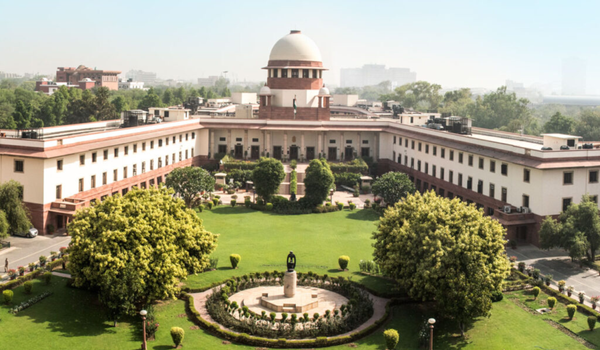US Journalist Sues Indian Government Over OCI Revocation: A Legal Battle Over Citizenship Rights

Author- Tania Kukreja, LL.M. Student, Amity University, Mohali, Punjab
Introduction:
The controversy arose when the Indian Government revoked the Overseas Citizen of India (OCI) status of U.S. Journalist Raphael Satter, for accusing him of publishing work that “maliciously” tarnished India’s reputation and “practicing journalism without proper permission.” This action coincided with a defamation suit filed against Satter in an Indian court over a report he authored about the Indian cybersecurity firm Appin and its co-founder, Rajat Khare. The title of the article “How an Indian startup hacked the world” exposed the company’s involvement in global hacking operations.
The revocation of Satter’s OCI status has drawn international criticism, with concerns that the BJP-led government’s actions suppress press freedom. Reports indicate that more than 100 OCI cards have been revoked in the past decade, often targeting dissenting voices. Critics argue that such measures undermine free expression and discourage journalists from holding power to account.
After receiving no response to his appeal for over a year, Satter turned to the courts, claiming the decision had “effectively cut him off from his family and a country he deeply respects.” He remains hopeful that the Indian judiciary will recognize the integrity of his journalism and that the Ministry of Home Affairs will reconsider its decision. The Delhi High Court is set to hear his case on May 22.
This article will explore the legal framework surrounding OCI status, the government’s authority to revoke it and the broader implications for press freedom and constitutional rights in India.
Historical Perspective & Evolution of OCI:
The Overseas Citizenship of India (OCI) is a legal status granted to foreign nationals of Indian origin, registered under Section 7A of the Citizenship Act, 1955. While it is often referred to as a form of “dual citizenship,” it is not a literal dual citizenship, as India does not permit holding multiple citizenships.
The OCI scheme was introduced in 2005 through an amendment to the Citizenship Act, 1955, as a response to persistent demands from the Indian diaspora, particularly in North America and other developed countries. It symbolizes the Indian government’s commitment to strengthening ties with overseas Indians while providing them with certain privileges.
However, OCI status does not confer any political rights. OCI cardholders are not entitled to vote, contest elections, or hold constitutional offices. Additionally, under Article 16 of the Indian Constitution, they are ineligible for government employment. The primary advantage of the OCI card is that it grants lifelong, multiple-entry, multi-purpose visas, allowing cardholders to visit, reside, or work in India without the need for additional permits.
This legal distinction emphasizes that the OCI card is more of a facilitative measure rather than a recognition of dual nationality, placing specific limitations on the rights and privileges of its holders.
Legal Framework:
The legal status of Overseas Citizen of India (OCI) cardholders is governed by the Citizenship Act, 1955, specifically under Section 7A to Section 7D.
Under Section 7A, OCI status is granted to individuals who were citizens of India on or after January 26, 1950, or were eligible to become citizens at that time. However, individuals with a history of renouncing Indian citizenship, serving in foreign militaries, or representing foreign governments in politically sensitive capacities are generally disqualified.
Under Section 7D, the act allows the government to revoke OCI status if the cardholder is found to have engaged in activities prejudicial to India's interests, violated the law, or obtained the status through fraudulent means.
Grounds for Revocation:
The Revocation can be on any of the following grounds:
· Fraud or misrepresentation
· Violations of Laws
· National Security Threats
· Public Interest or Defamation
In the case of Raphael Satter, the Indian government claims that his journalistic work maliciously tarnished the country’s reputation. Additionally, the government alleges that he practiced journalism without proper permission, which could be categorized as a violation under Indian law.
Constitutional Provisions and Judicial Safeguards:
India’s Constitution provides a framework for challenging arbitrary government action. Two key provisions that may apply in this case are:
· Article 14 (Right to Equality): Ensures protection against arbitrary actions and discriminatory treatment. The principle of “reasonable classification” applies, meaning the government must justify its actions with a fair and non-discriminatory rationale.
· Article 19 (Freedom of Speech and Expression): Guarantees the right to express opinions freely, including through journalism. While foreign nationals do not enjoy Article 19 protections in the same capacity as Indian citizens, OCI cardholders may still claim certain rights under constitutional and international human rights laws.
Indian courts have previously examined the legality of OCI revocations. The principle of natural justice gives the individuals a chance to have a fair opportunity of being heard and defend themselves before the final decision is given.
In cases like Suresh Nanda v. Union of India, the judiciary emphasized the importance of proportionality in administrative actions with a focus on ensuring that government actions are fair, reasonable, and within the thresholds of necessity.
Thus, Satter’s decision to approach the Delhi High Court is a step towards seeking such judicial intervention. His team argues that the ministry failed to follow the due process, since his appeal remained unanswered for over a year.
Comparative International Perspectives:
In other countries, similar immigration frameworks exist to maintain control over foreign nationals while ensuring transparency and fairness. For example:
- United States: The U.S. revokes residency permits in cases of criminal activities, fraud, or threats to national security, but such decisions are subject to extensive judicial review.
- United Kingdom: The UK can revoke citizenship in cases of terrorism or acts against the national interest. However, legal remedies and appeal mechanisms are well-established.
India’s handling of Satter’s case will be closely scrutinized by international human rights organizations, as it raises questions about the government’s commitment to press freedom. The outcome will set a precedent for how OCI cardholders are treated and whether the revocation of their status can be used as a tool to suppress dissenting voices.
For further updates on legal developments, stay connected with LegalWiki.
For daily legal updates, visit our website https://legalwiki.co/


![Senior Associate at JSA [General Corporate, PQE 3-7 Yrs]: Apply Now!](/content/images/size/w600/2026/02/Legalwiki-5.png)
![Legal Associate at Unilever Bangalore [Contract Lifecyle, PQE 3-5 Yrs]- Apply Now!](/content/images/size/w600/2026/02/Unilever.webp)
